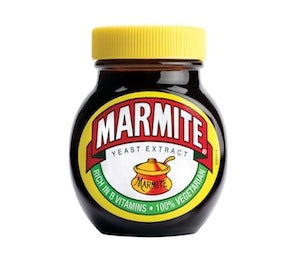Accreditation scheme to identify legitimate telemarketers planned
Direct marketing chiefs are looking to reassure the public that not all telemarketers are rogue operators making nuisance calls by developing an accreditation scheme that will be awarded to companies that meet industry standards of ethical practice. The move comes as the chairman of the all-party group on nuisance calls pressures the Government to introduce additional measures to block calls and text messages passing over UK telephone networks.

The Direct Marketing Association (DMA) is putting the finishing touches to a scheme dubbed TPS Assured – after self-regulatory body the Telephone Preference Service – which will be awarded to companies that demonstrate they are compliant with the requirements of the TPS.
The TPS, run by the DMA under license from Ofcom but enforced by the Information Commissioner’s Office (ICO), has almost 18 million people registered that have asked to be removed from prospect lists.
TPS Assured, however, will only be awarded to brands that make their own outbound calls, not the contracted call centres that are often guilty of not screening the TPS and therefore making the unwanted calls.
The DMA hopes the award of the accreditation will help repair some of the reputational damage inflicted on telemarketers following a slew of negative headlines, by marking out those respecting the requirements of the TPS.
Mike Lordan, chief of operations for the TPS, told Marketing Week: “Becoming TPS Assured accredited will enable companies to demonstrate that they comply with TPS rules and regulations. This scheme will also play an important role in protecting the legitimate telemarketing industry from the problem of nuisance calls made by rogue companies.”
News of the scheme comes just weeks after the ICO and Ofcom revealed they are reviewing the role and effectiveness of the TPS to evaluate how well it is working for consumers. A recent study by consumer watchdog Which? found those registered receive more nuisance calls than those that are not, with the majority polled (60 per cent) unhappy with the service.
TPS Assured is set to go live in October. It is due to be launched to coincide with the announcement of legislative measures by the Department for Culture, Media and Sport to tackle nuisance calling, likely to include a lowering of the number of complaints needed for the ICO to issue penalties.
Elsewhere, the chairman of the All-Party Parliamentary Group (APPG) on nuisance calls, Mike Crockart MP, is arguing for “a proper network solution” to filter nuisance calls and spam texts before they reach consumers’ phone lines. Both the APPG and the House of Commons Culture, Media and Sport select committee will hear evidence on the subject in September and October, once Parliament reconvenes.
One proposed technology is the Mobile Preference Service, a tool created by software company Pinesoft. It blocks text messages that consumers choose to opt-out of and could be extended to cover voice calls, according to Pinesoft development manager James Day. It would need to be implemented by phone networks and the direct marketing industry.
It is being mooted as an accompaniment to the TPS, which only regulates voice calls. Unlike the TPS, it could also block telemarketing originating outside the UK.
But operators are balking at the cost of implementing a network-level blocking system, according to Day, and at the reduced revenues they would receive from marketing texts and calls sent over their infrastructure.
Lib Dem Crockart is due to meet communications minister Ed Vaizey in October to discuss potential technological approaches to cracking down on nuisance calls and texts. As well as Pinesoft, consumer products from trueCall and CPR Global are being touted as solutions. These block calls to individual phones and are currently paid for by consumers.
Crockart has also authored one of 20 private member’s bills that are guaranteed time for Parliamentary reading thanks to an annual ballot of MPs. It calls for a one-year time limit on consumers’ consent to receive third-party marketing and would require businesses to prove that consent has been given.
The legislation, supported by Which?, will have its second reading on 1 November, but is only likely to pass if it receives government backing.







